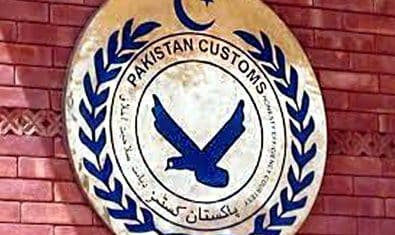The State Bank of Pakistan (SBP) loaned Rs. 239 billion to the coalition government in the first two months of the calendar year 2023, a clear violation of the IMF-mandated SBP Act, amended in 2022, which prohibits government borrowing from the central bank.
Islamabad-based economic think tank PRIME has released its quarterly report, Prime Plus, which tracks the progress on the pillars of economic prosperity along with the analysis of macroeconomic trends and outlook. The report highlights that the dismal performance of Pakistan’s economy results from deterioration in political stability in the country and reluctance of the governments to carry out reforms.
The pillars of economic prosperity are limited government footprint, spending restraints, low tax rates, reduction of trade barriers, establishing sound money, and privatizing loss-making state-owned enterprises.
The report highlights an excessive government footprint in the economy and public spending which continues to fuel economic crisis. The fiscal deficit cloaked at Rs. 1.87 trillion or 2.3 percent of GDP in Jul-Feb 2023 where expenditures stood at Rs. 5 trillion and revenues were Rs. 3 trillion.
Therefore, the government borrowed Rs. 1.39 trillion in the first two months of the third quarter of FY 2023 out of which Rs. 239 billion was from the State Bank and Rs. 1.15 from commercial banks. Resultantly, the borrowing for budgetary needs led to a build-up of the public debt of more than Rs. 54.9 trillion.
The report highlights that the government’s restrictions on imports to stem the burgeoning current account deficit succeeded in bringing down the deficit from $12 billion to $3.8 billion in July-Feb 2023 from last year, it also contributed to a halt in the manufacturing sector where the output of the sector declined by 5.56 percent in eight months compared to last year. This slowdown contributed to inflation and prospects of further hikes in the coming months.
The slowdown in the manufacturing sector also resulted from a decline in the borrowing of the private sector by Rs. 219 billion in the first two months of the third quarter of FY 2023 and total borrowing stood at Rs. 7.4 trillion.
The borrowing of the private sector under the export processing scheme also declined by Rs. 7 billion. The decline in borrowing can be attributed to a 300 basis points increase in the policy rate and a halt in operations due to the unavailability of raw materials.
The report argues that the taxation system of Pakistan is regressive in nature with more reliance on indirect taxes because the government has remained unsuccessful to broaden the tax base and people are reluctant due to exorbitant rates of taxes. The distortions emanating from high taxes can be represented by the fact the sale of smuggled cigarettes in March 2023 increased by more than 30 percent and the sale of legitimate cigarettes fell by more than 60 percent after the increase of federal excise duty in supplementary finance bill 2023.
The adoption of a market-based exchange rate has promoted some stability in the foreign exchange market, but the weak economic fundamentals keep the currency precarious. However, the debt servicing obligations and import payments kept the pressure on the local currency and exchange rate in the third quarter of FY 2023 depreciating by 25 percent from Rs. 225 at the end of December 2022 to Rs. 281 at the end of March 2023. Moreover, the foreign exchange reserves declined from $5.6 billion to $4.2 billion at the end of March.
The governments in Pakistan remained unsuccessful to carry out reforms due to political instability and reluctance due to a potential fall in the political capital. However, the current political divide has deeply fragmented the masses and any consensus on key policy reforms remains elusive.
The government’s continuous deviation from the agreed path with the IMF has resulted in the cessation of the program and a significant delay in the completion of the 9th review. Despite the completion of prerequisites such as a market-based exchange rate, a hike in utility prices, and the mini-budget, the government could not restore confidence and IMF is currently waiting for confirmations from friendly countries for their previously agreed financial support.
The government is struggling to control inflation and the State Bank of Pakistan is continuously increasing the annual range as inflation expectations remain anchored. The increase in the policy rate up to 300 basis points in the quarter will manifest an outcome with a lag of a few months. However, the supply chain disruptions, halt in manufacturing activities, and restriction on imports will keep the prices inflated in the coming months.
The government needs to allow imports by reducing tariff and non-tariff barriers to facilitate manufacturing activities and promote competition in the sector. It is also imperative for the government to reevaluate its role in the economy by moving away from business and focusing more on regulations to create a business conducive environment in the country.
The facilitation of businesses also requires simplification of the taxation system and reduction in the rates of taxes to promote compliance. The reduction in government borrowing from commercial banks will ensure the availability of necessary capital for the private sector to enhance manufacturing activities and cater to supply-side inflationary pressures.

Follow ProPakistani on Google News & scroll through your favourite content faster!
Support independent journalism
If you want to join us in our mission to share independent, global journalism to the world, we’d love to have you on our side. If you can, please support us on a monthly basis. It takes less than a minute to set up, and you can rest assured that you’re making a big impact every single month in support of open, independent journalism. Thank you.



























Noyhong strange, Old saying “Chore Chori si jaiay, Hera Pheri si Na Jaiay”
Looks like you are Anti-Pakistan and not Pro Pakistan…please change your website name…looks like you are more sincere towards IMF rather than Pakistan.
It has nothing to do with pro Pakistan or anti Pakistan the question is about honesty if the government agrees to certain condition and mandate than we must commit to it. To create trust and honest environment